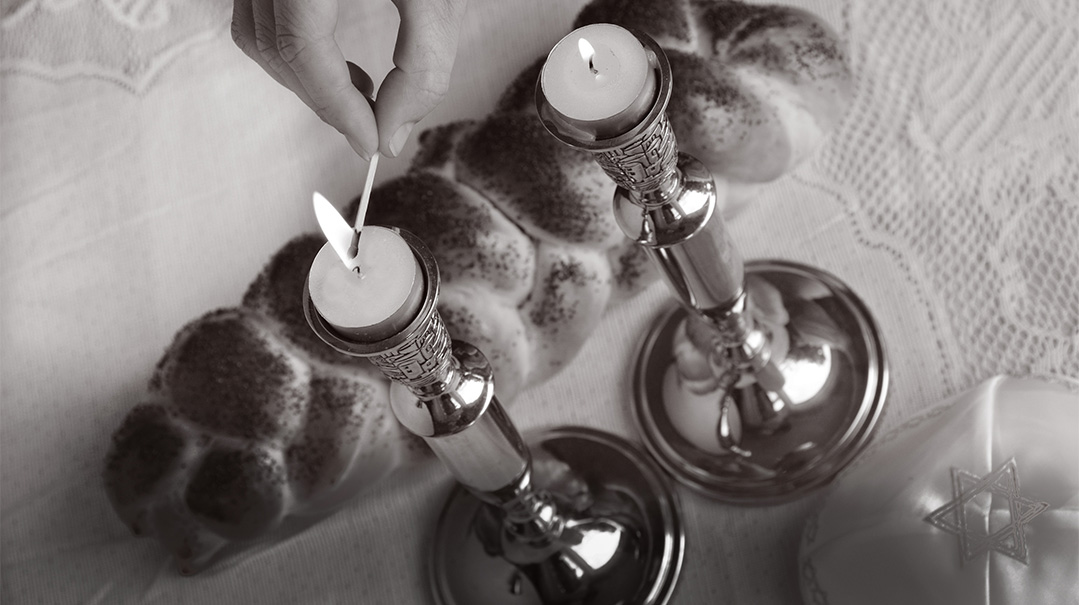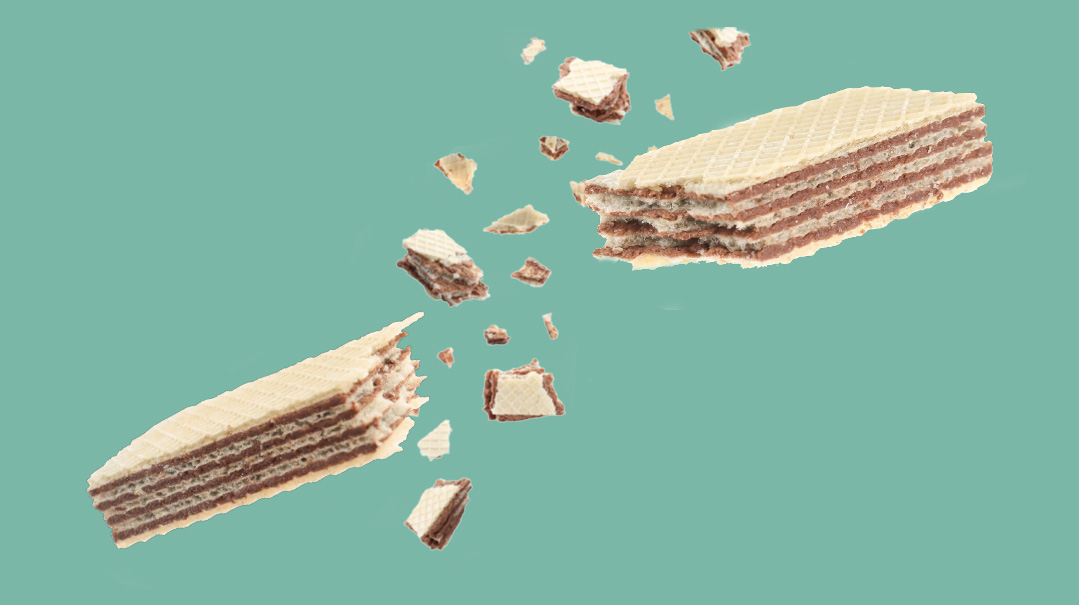No Big Deal
| June 14, 2022Suddenly I felt a rush of gratitude, dizzyingly strong, for the life Hashem has given me

“I
have to ask you something,” my husband began. His tone made me stop what I was doing and look up.
It was early Friday afternoon and I was ready for a relaxing Shabbos. I hadn’t been feeling well earlier in the week, and when my mother offered to send me Shabbos, I’d accepted with guilty relief.
“So I already told him I think the answer is no, because you’re not feeling well, so it’s really, really no pressure, but I said I would ask…” My husband trailed off.
“Okay…” I waited for him to continue. This wasn’t sounding very reassuring so far.
“You know that meshulach who was here the other day, the one who calls me Mandelbaum? He wants to know if he could come for Shabbos.”
I panicked.
Some people have random guests all the time. I’m not like that. I need my privacy. And Shabbos is hard! The kids wake up early and get wild and the baby doesn’t walk yet and there’s no eiruv, so we’re stuck inside all day, and I don’t want some stranger I know nothing about to be in my space the whole time.
“Don’t do this to me!” I wailed.
“You don’t have to say yes,” my husband reassured me. “I already told him the answer is probably no.”
He went into the kitchen. I followed.
“I really don’t want him to come,” I said.
He lifted the crockpot lid and frowned at the cholent.
“How could we not have him? He’s here all alone,” I said.
“Do you think this needs water?”
“I really, really don’t want guests this Shabbos!”
He replaced the lid. “No water.”
“How could I say no?”
“If it’s too much for you, then don’t do it,” my husband said with finality.
Ugh. I hate that answer, as do most of the women I know. I don’t know what time the kids will wake me up tomorrow and whether the baby will be kvetchy or not; I don’t even know the guy! How am I supposed to know if it will be too much for me?
I called my mother. “Maybe he can come to you just for a meal?” she suggested.
That wouldn’t work. His health issues didn’t allow him to walk more than a few blocks from where he would sleep.
“It’s very, very nice of you if you decide to do it… but you don’t have to,” she said.
“I know! That’s what makes it hard!” I answered.
“Do you even have enough food?”
“I already tried that,” I said gloomily. “You sent me a ton. More than I usually make for Shabbos.”
She laughed.
I sighed.
My gut feeling was that if I agreed, it wouldn’t end up being that big of a deal, even though I really didn’t want to. I shared that with my mother and she agreed.
I called my husband.
“Say yes,” I said.
“Really?” He sounded surprised.
“Why, you don’t think I should do it?”
“No, I do! But can you handle it?”
“I think so. It might be uncomfortable. Does that mean I shouldn’t do it?”
“Listen,” he said, “I always feel like, baruch Hashem, I don’t have that many uncomfortable things going on in my life, so if something like this comes up, it’s not the biggest deal.”
Our guest was a smiling Sephardi Israeli. He was a pleasant conversationalist and complimented everything in a quaint mix of Hebrew and English.
Pouring pepper into his soup, he told us about growing up in Yerushalayim in the ’60s. They were very poor, he said, and many of the teenagers would leave for America to try to make money. He described the way the little boys from the neighborhood would crowd around these celebrities when they came home to visit.
I asked him which neighborhood he lived in, and he began describing the area. “You know where is Meah Shearim?”
He told us that at the end of the street, adjacent to the Green Line, is where he grew up.
“They always had there, the Jordanians,” he held his hands up and mimed aiming a gun. “Sharp-shooters.” He pronounced the words carefully. “They would do this,” he pointed with his pretend gun, following an imaginary moving target, and then jumping to attention. “When we were kids, playing ball, they were always watching on us.
“One girl from Beit Yaakov, she was upstairs, seven floors up, hanging laundry,” he said, miming the action. “They shot her, and she fell, seven stories to the ground. My sister’s best friend in the world.”
I got up to bring the dishes into the kitchen. There was a strange, chilling feeling in my gut.
I knew scenes like the ones our guest described exist, but they were nightmares hovering at the edge of my consciousness, images I avoided looking at directly. But sometimes, something — a story, a comment, a picture — was thrust before me, like this one was, and I had no choice but to face it.
That afternoon, my biggest concern had been the potential lack of privacy in the main living space in my house over Shabbos.
Yet suddenly I felt a rush of gratitude, dizzyingly strong, for the life Hashem has given me, and for the little challenges He sends my way: opportunities to stretch, to give, to grow.
My children slept peacefully in their beds, the air conditioner hummed in the background, and as I loaded the dishwasher, one soup bowl at a time, my husband’s words from earlier in the day played through my mind.
I always feel like, baruch Hashem, I don’t have that many uncomfortable things going on in my life, so if something like this comes up, it’s not the biggest deal.
He was right. It really was no big deal.
(Originally featured in Family First, Issue 797)
Oops! We could not locate your form.







